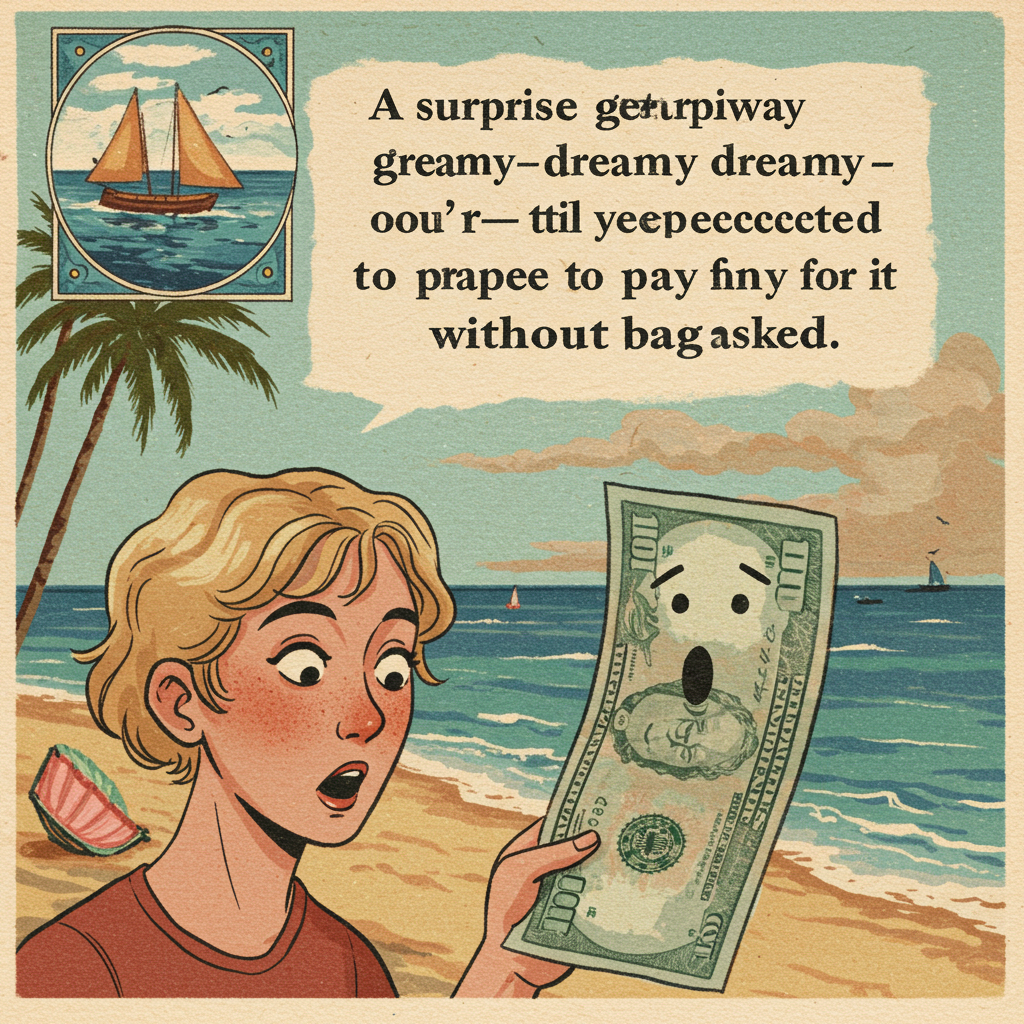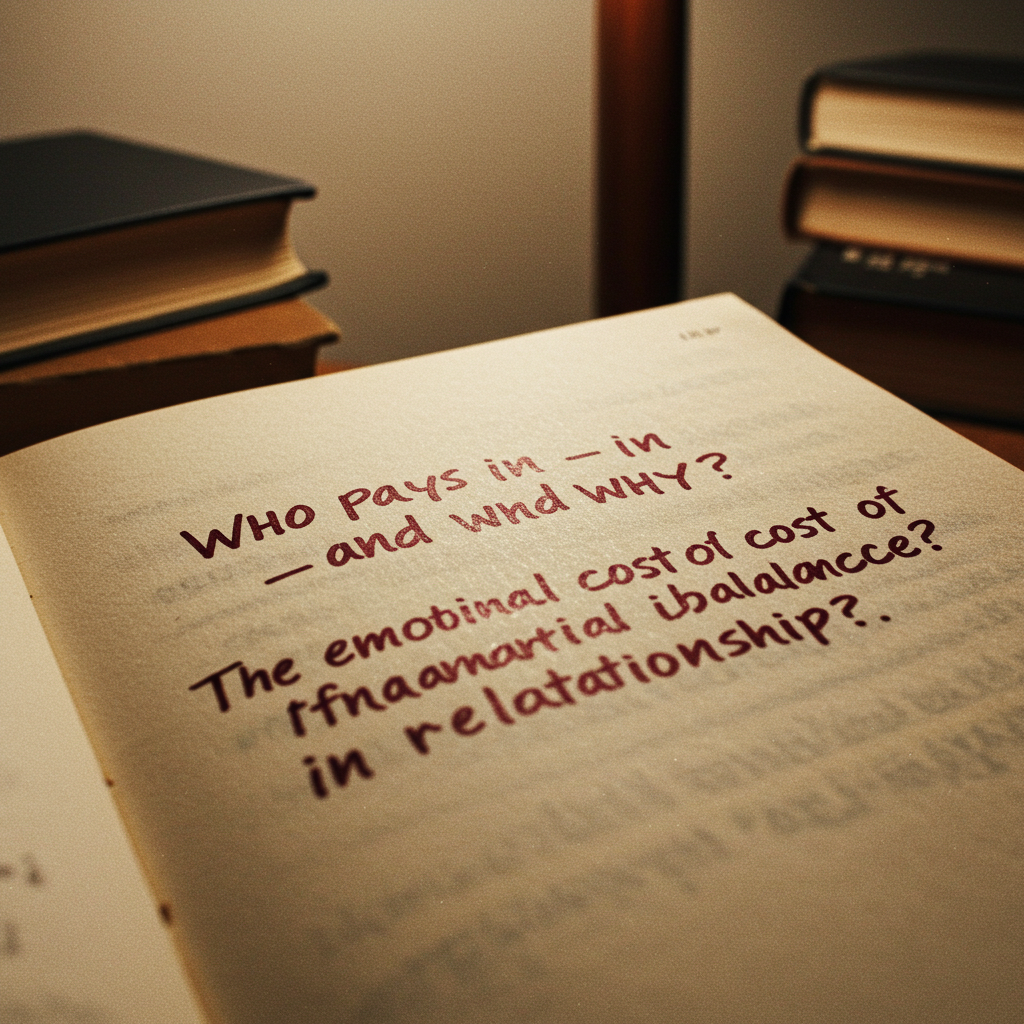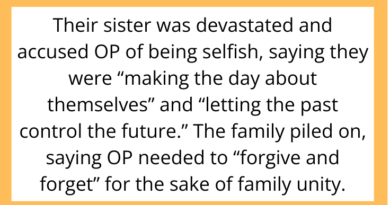AITAH for Not Paying for My Girlfriend’s Birthday Trip After She Planned It Without Asking Me?
Vacations are supposed to be relaxing—but what happens when a surprise getaway turns into a financial guilt trip? In today’s AITAH-inspired breakdown, we dive into a relationship dilemma where generosity meets expectation… and boundaries are put to the test.
Let’s unpack what really happened—and whether saying “no” makes you a bad partner.

The Scenario: A Surprise Plan With a Price Tag
A 27-year-old man—let’s call him Sam—shared his story on r/AITAH after a fight with his girlfriend, Mia, 26. The conflict started when Mia excitedly announced she had planned an elaborate birthday weekend getaway for the two of them. There was only one problem: she expected Sam to foot the entire bill.
The destination? A high-end beach resort five hours away. Activities included spa treatments, fine dining, and a private boat tour. Mia had even invited two of her close friends to “join for one night and split the fun.”
Sam was stunned. The total cost? Over $2,000.
The kicker? Mia never consulted him before booking anything.
Sam Says “No”—And All Hell Breaks Loose

Sam calmly told Mia he couldn’t afford to pay for such an expensive trip—especially one he didn’t agree to in the first place. He offered to celebrate her birthday in a more budget-friendly way, like a nice dinner or a short weekend trip somewhere nearby.
Mia didn’t take it well.
She accused Sam of being cheap, unromantic, and thoughtless. She said “a real boyfriend would want to spoil the woman he loves.” She also reminded him that she’d “gone all out” on his birthday last year—a claim Sam disputes, saying her gift was thoughtful but not extravagant.
Feeling frustrated and manipulated, Sam turned to Reddit and asked:
AITAH for refusing to pay for a birthday trip I didn’t ask for or agree to?
Let’s Break It Down

The Case for Sam: Boundaries and Budgeting
Sam’s stance seems reasonable to many. Financial decisions in a relationship—especially expensive ones—require mutual discussion. It’s not about refusing to celebrate Mia, but rather about setting a boundary around money and expectations.
By planning an expensive getaway without input and assuming Sam would pay, Mia put him in an uncomfortable position. Love doesn’t require blind spending, especially when it’s sprung on someone with no warning.
This isn’t about stinginess—it’s about communication and respect.
The Case for Mia: Expectations and Emotional Investment

From Mia’s point of view, she may have seen the trip as a romantic gesture—a shared experience to celebrate her special day. Maybe she believed Sam would be excited to be part of it. She might’ve assumed he’d want to invest in the relationship emotionally and financially.
To her, Sam’s refusal may feel like rejection or proof that he doesn’t value her enough.
Still, the key issue isn’t the trip—it’s the assumption.
Reddit Reacts: Support for Sam

Reddit commenters overwhelmingly sided with Sam.
One top comment read:
“You’re not a wallet. She planned a vacation for herself and stuck you with the bill. That’s not romantic—it’s manipulative.”
Another user wrote:
“A gift you plan yourself and expect someone else to pay for isn’t a gift—it’s entitlement.”
However, a few commenters also encouraged Sam to reflect on whether Mia’s disappointment came from poor communication on both sides. Was she expecting more involvement? Did Sam brush off previous hints?
Money, Power, and Emotional Labor in Relationships

This AITAH scenario taps into a larger conversation about money and expectations in dating. Who pays for what—and why?
Some key takeaways:
-
Mutual consent matters, even in surprises. Especially when money is involved.
-
Gifts shouldn’t come with a financial invoice.
-
It’s okay to say no to things that don’t align with your values or budget.
Couples who thrive financially and emotionally tend to have honest conversations early—about spending styles, financial goals, and what love looks like in action.
Could This Have Been Handled Better?

What Sam Could’ve Done:
-
Reaffirm his appreciation for the thoughtfulness behind the gesture.
-
Clearly explain his financial boundaries earlier in the relationship.
-
Offer alternative plans that feel equally celebratory but less expensive.
What Mia Could’ve Done:
-
Involve Sam in the planning process instead of assuming.
-
Communicate her expectations and ask about budget beforehand.
-
Focus on creating memories over creating financial pressure.
Final Verdict: Not the Villain

Sam wasn’t wrong to say no. In fact, his boundary was necessary and healthy. Surprising your partner is sweet—but expecting them to fund a surprise they didn’t ask for crosses a line.
This situation highlights something important: Being generous doesn’t mean being financially reckless. Love isn’t measured in dollars—it’s measured in respect, thoughtfulness, and mutual understanding.



